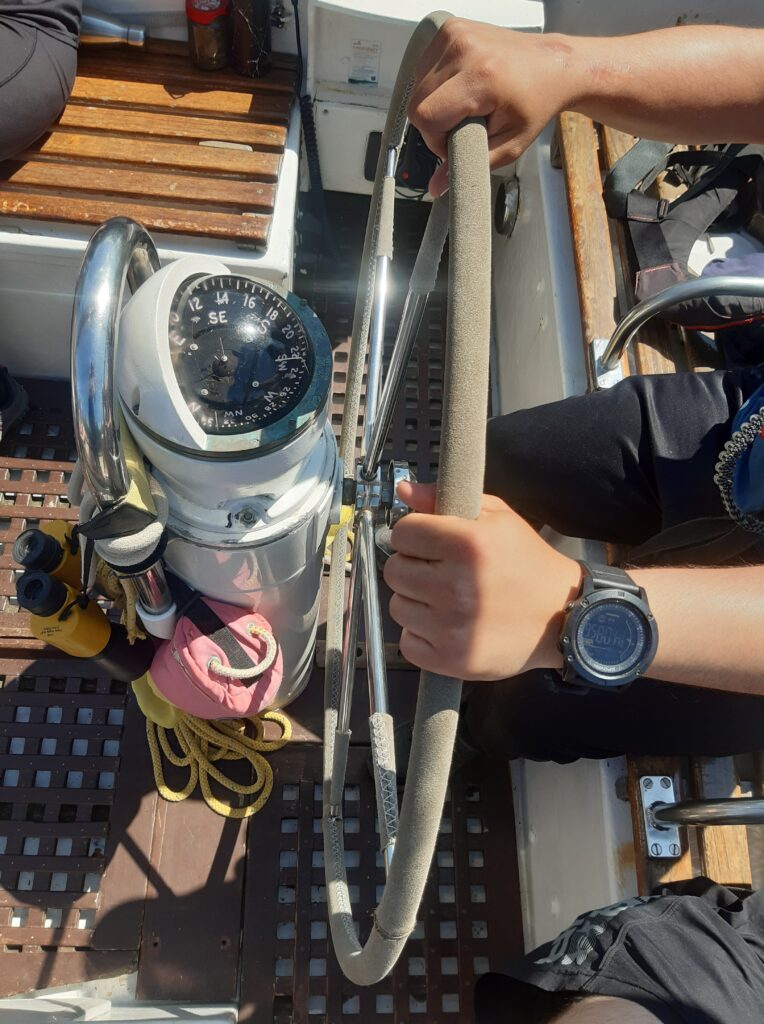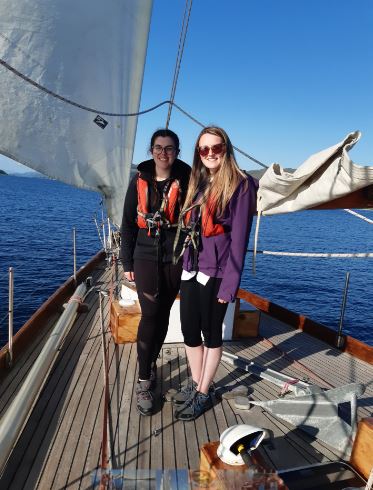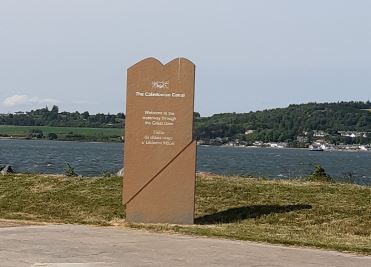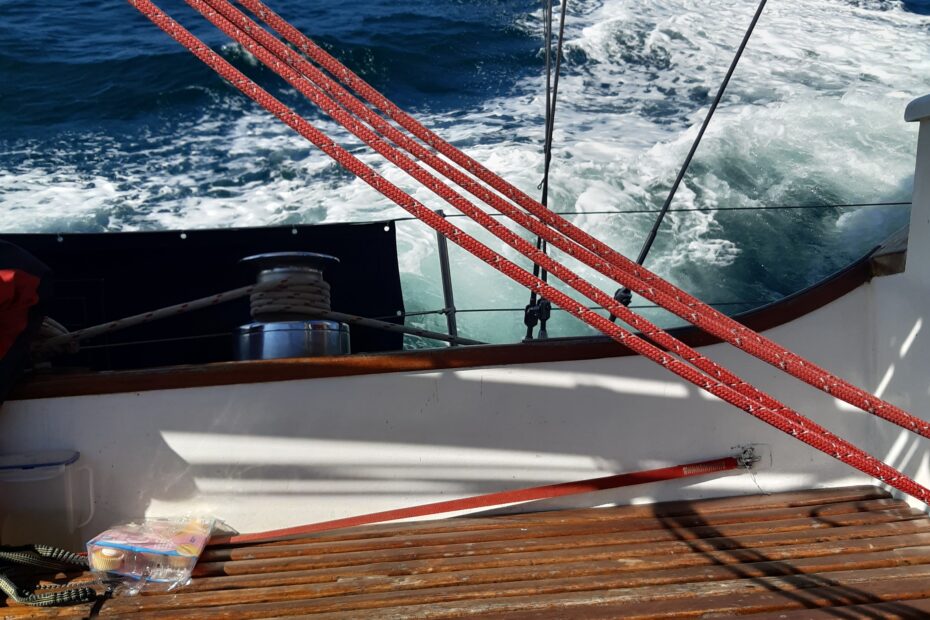
A sailing trip with a difference saw a crew of NHSGGC mental health team staff and service users successfully test themselves in the North Sea.
And now that the Esteem service has found its sea legs, there could be more seafaring trips aimed at helping early intervention in psychosis in young adults.
Nine service users and three Esteem team members teamed formed the crew of the Faramir, a sailing ship operated by Welsh charity Cirdan Sailing Trust, on the Oban to Peterhead leg of their circumnavigation of the British Isles.
Mental health teams from across the UK took part in the journey, crewing different legs of the trip with three experienced sailors from the charity.
Specialist Occupational Therapist Sarah Stewart, Community Psychiatric Nurse Chloe Davers and Specialist Occupational Therapist Calum Vaughan – along with the service users – earned a Royal Yachting Association certificate for their efforts on the 232-mile trip earlier this year.
That meant they had learned practical sailing skills such as navigation as well as hands-on experience of making sure a boat is seaworthy and safe to travel on
But more importantly, everyone learned new skills that could help deal with issues that can have an impact on mental health.
Sarah said: “This was a whole new experience. As staff we felt we had a real group around us. Nobody had any experience of sailing so we were literally all in the same boat.

“That could be quite a challenging environment thanks to the space confines, but we had a routine and we really had to act as a group, sharing that space and it went well.”
The service users played a huge role in the preparation and planning for the trip – which was supported by Cirdan’s Voyage of Discovery fund– and then as active members of a sailing ship crew, split into teams, or watches, and gained valuable new skills.
Sarah added: “Making up the crew was a great team building activity – service users were involved in preparation and planning and on board we were split into three watches, and had cooking and cleaning rotas, which really helped in terms of peer support.
“All of us had to be very disciplined and working in the watch structure meant there was a routine to follow in terms of work to be done and safety matters, but everyone learned some new skills, about leadership and overcoming adversity.
“The watch system was very structured, and different from what a lot of our service users experience in their day-to-day lives, so they were learning a range of new skills.”
The first part of the trip in June saw the boat sail from Oban on the west coast and along the Caledonian Canal to the North Sea.
Sarah said: “The first part of the trip on the canal as very calm, a great way to see some of the really beautiful scenery of Scotland.

“Once moored and work was done, we cooked and ate as a group and played games in the evening down time, which also helped build the team and improve social skills.
“People were sometimes having to overcome personal challenges in terms of trust or anxiety so it was great to see everyone bonding.
“We also had a couple of showers stops while we were on the canal which made a huge difference. It’s quite a confined space on a boat, something we were all very aware of, but the way everything is designed, the best possible use is made of every space which is brilliant.”
But the real challenges came as the boat made its way to Peterhead, with two days and an overnight sail in the North Sea.
Sarah added: “When we arrived at the North Sea and the night sailing, we had been able to prepare a little, but the seasickness was a real challenge.
“It was hard going, sailing against the wind, and sometimes the boat was at a 45 degree angle and was having to zig-zag to pick up speed, so no one really got away with it!
“But everyone was supporting each other and that was good to see that peer support.”
Once back on dry land, the newly-certificated crew were asked for their views on how they found the experience.
Sarah added: “We asked everyone if they would do it again. The majority said yes.
“Although two said that they wouldn’t do it again themselves, they would recommend the experience to other people and would encourage them to take part if they were offered the opportunity.
“Overall, it has been a really rewarding experience for everyone.”
Esteem Team Leader James Bell said: “This was an incredible opportunity for service users to experience the health benefits of Nature. Not only that, it also helped people to learn new life skills and build their self-confidence.
“As a service we are incredibly proud of all those who participated, and extremely grateful to Chloe, Sarah and Calum for not only their hard work and preparation, but also giving of their own personal time to facilitate this for the good of service users.”
The Esteem service – which provides early intervention in psychosis in young adults – is a key part of NHSGGC’s Mental Health strategy, which is designed to move services to a community-based delivery model and reduce the need for in-patient care.
